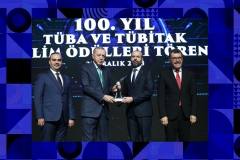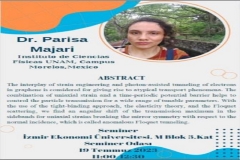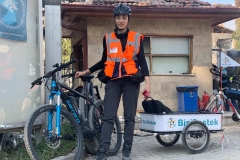
FACULTY OF ARTS AND SCIENCES
Department of Physics
GEET 311 | Course Introduction and Application Information
| Course Name |
Politics of Human Rights
|
|
Code
|
Semester
|
Theory
(hour/week) |
Application/Lab
(hour/week) |
Local Credits
|
ECTS
|
|
GEET 311
|
Fall/Spring
|
3
|
0
|
3
|
4
|
| Prerequisites |
None
|
|||||
| Course Language |
English
|
|||||
| Course Type |
Service Course
|
|||||
| Course Level |
First Cycle
|
|||||
| Mode of Delivery | - | |||||
| Teaching Methods and Techniques of the Course | DiscussionLecture / Presentation | |||||
| Course Coordinator | - | |||||
| Course Lecturer(s) | ||||||
| Assistant(s) | ||||||
| Course Objectives | This course is designed to introduce students with the development of human rights as a global phenomenon, an international legal regime transgressing state borders. Our aim is to explore certain questions pertaining to human rights: What is it that we call “human rights”? In what historical periods can we locate progress and expansion in human rights? What do human rights stand for/against? What does it mean to have human rights with a claim to universality? By giving priority to primary texts and documents on human rights, we will try to understand this historical, legal, and political concept both in theory and practice. |
| Learning Outcomes |
The students who succeeded in this course;
|
| Course Description | Our course will proceed on the basis of three parts. In the first part, we will have a general introduction to the course, and will read the Universal Declaration of Human Rights of 1948 adopted by the United Nations. In this part, we will also spend time on a broad yet somewhat nuanced enough trajectory of human rights. In so doing, we will try to diagnose and shed light upon certain keystones, radical shifts, and arguably progressive moments in historical development of conceptual, political and legal articulations of human rights. In the second part, we will focus on the early 20th century developments on human rights; such as the two world wars, the Nuremberg Trials, and the international recognition of “crimes against humanity” and genocide. We will spare our last few weeks on the decolonization period onwards. In this part we will discuss issues such as right to self-determination, child labor, migrant workers, and rights of persons with disabilities. |
|
|
Core Courses | |
| Major Area Courses | ||
| Supportive Courses | ||
| Media and Management Skills Courses | ||
| Transferable Skill Courses |
WEEKLY SUBJECTS AND RELATED PREPARATION STUDIES
| Week | Subjects | Related Preparation |
| 1 | Introduction to the course: Presentation and an overview of the course, course organization, requirements and methods of evaluation | |
| 2 | Defining the Concept of Human Rights | Carey, et. Al. (Cambridge University Press, 2010): “The Politics of Human Rights”, pp.7-39 |
| 3 | Historical Development and Philosophical Justifications of Human Rights | Andrew Clapham (Oxford University Press, 2007): “Human Rights – a Very Short Introduction”, pp.23-56 |
| 4 | Human Rights and Political Theory | Hannah Arendt – The Perplexities of the Rights of Men in Origins of Totalitarianism |
| 5 | Genocide and Crimes against Humanity | UN Charter, Nuremberg Trials, Convention on Genocide (1948) Andrew Clapham, “Persecution of International Crimes,” in Human Rights: A Very Short Introduction, (NY: Oxford University Press), pp. 33-42. |
| 6 | Rights of refugees, migrants, prisoners of war and prevention of torture | UN Convention Relating to Status of Refugees (1951) Sabine C. Carey et al. “The Politics of Human Rights”, pp. 73-86. |
| 7 | Midterm I | |
| 8 | Human Rights and Political Theory | Jaques Ranciere – “Who is the Subject of Rights of Men?” |
| 9 | Human Rights and Political Theory | Martha Nussbaum – “Capabilities and Human Rights |
| 10 | Cultural Rights as Human Rights | Henriette Dahan Kalev, 2004, “Cultural Rights or Human Rights: The Case of Female Genital Mutilation” Sex Roles, Vol. 51, No. 5/6. |
| 11 | Human rights in Turkey | Zehra Kabasakal Arat, “Collisions and Crossroads: Introducing Human Rights in Turkey”. |
| 12 | Midterm - II | |
| 13 | Human Rights and Political Theory | Bruce Ackerman – “We the People” Introduction |
| 14 | Human Rights and Political Theory | Claude Lefort – The Political Forms of Modern Society, Chapter 7: Politics and Human Rights |
| 15 | Review of the Semester | |
| 16 | Final Exam |
| Course Notes/Textbooks | |
| Suggested Readings/Materials |
EVALUATION SYSTEM
| Semester Activities | Number | Weigthing |
| Participation |
1
|
20
|
| Laboratory / Application | ||
| Field Work | ||
| Quizzes / Studio Critiques | ||
| Portfolio | ||
| Homework / Assignments | ||
| Presentation / Jury | ||
| Project | ||
| Seminar / Workshop | ||
| Oral Exams | ||
| Midterm |
2
|
50
|
| Final Exam |
1
|
30
|
| Total |
| Weighting of Semester Activities on the Final Grade |
3
|
60
|
| Weighting of End-of-Semester Activities on the Final Grade |
1
|
40
|
| Total |
ECTS / WORKLOAD TABLE
| Semester Activities | Number | Duration (Hours) | Workload |
|---|---|---|---|
| Theoretical Course Hours (Including exam week: 16 x total hours) |
16
|
3
|
48
|
| Laboratory / Application Hours (Including exam week: '.16.' x total hours) |
16
|
0
|
|
| Study Hours Out of Class |
0
|
||
| Field Work |
0
|
||
| Quizzes / Studio Critiques |
0
|
||
| Portfolio |
0
|
||
| Homework / Assignments |
0
|
||
| Presentation / Jury |
0
|
||
| Project |
0
|
||
| Seminar / Workshop |
0
|
||
| Oral Exam |
0
|
||
| Midterms |
2
|
20
|
40
|
| Final Exam |
1
|
30
|
30
|
| Total |
118
|
COURSE LEARNING OUTCOMES AND PROGRAM QUALIFICATIONS RELATIONSHIP
|
#
|
Program Competencies/Outcomes |
* Contribution Level
|
||||
|
1
|
2
|
3
|
4
|
5
|
||
| 1 | To be able master and use fundamental phenomenological and applied physical laws and applications, |
|||||
| 2 | To be able to identify the problems, analyze them and produce solutions based on scientific method, |
|||||
| 3 | To be able to collect necessary knowledge, able to model and self-improve in almost any area where physics is applicable and able to criticize and reestablish his/her developed models and solutions, |
|||||
| 4 | To be able to communicate his/her theoretical and technical knowledge both in detail to the experts and in a simple and understandable manner to the non-experts comfortably, |
|||||
| 5 | To be familiar with software used in area of physics extensively and able to actively use at least one of the advanced level programs in European Computer Usage License, |
|||||
| 6 | To be able to develop and apply projects in accordance with sensitivities of society and behave according to societies, scientific and ethical values in every stage of the project that he/she is part in, |
|||||
| 7 | To be able to evaluate every all stages effectively bestowed with universal knowledge and consciousness and has the necessary consciousness in the subject of quality governance, |
|||||
| 8 | To be able to master abstract ideas, to be able to connect with concreate events and carry out solutions, devising experiments and collecting data, to be able to analyze and comment the results, |
|||||
| 9 | To be able to refresh his/her gained knowledge and capabilities lifelong, have the consciousness to learn in his/her whole life, |
|||||
| 10 | To be able to conduct a study both solo and in a group, to be effective actively in every all stages of independent study, join in decision making stage, able to plan and conduct using time effectively. |
|||||
| 11 | To be able to collect data in the areas of Physics and communicate with colleagues in a foreign language ("European Language Portfolio Global Scale", Level B1). |
|||||
| 12 | To be able to speak a second foreign at a medium level of fluency efficiently |
|||||
| 13 | To be able to relate the knowledge accumulated throughout the human history to their field of expertise. |
|||||
*1 Lowest, 2 Low, 3 Average, 4 High, 5 Highest
NEWS |ALL NEWS

Four major awards in 5 years
Prof. Dr. Göktuğ Karpat, Faculty Member at Department of Physics, Faculty of Arts and Science, Izmir University of Economics (IUE) has been

The Physics Department Erasmus Agreement
Dear Students of the Physics Department at Izmir University of Economics, We are pleased to share with you an exciting announcement! Our university

Loved physics, gave up her childhood dream
Senem Özdemir, who has been dreaming of becoming a pilot since childhood, graduated as the top student in the Department of Physics

Scientific visit to the Department of Physics
Dr. Parisa Majari came to visit our Physics Department. Dr. Majari who studied with Prof. Dr. Gürsoy Bozkurt Akgüç gave a seminar

Ambassador of 'goodness'
Berfin Kolcu, a student of Izmir University of Economics (IUE) Department of Physics, went to Hatay, where thousands of people were under

our student physics project at the finals
NEBULA rocket team, a branch of physics club established by our students is now at the finals after succesfully passing critical design


